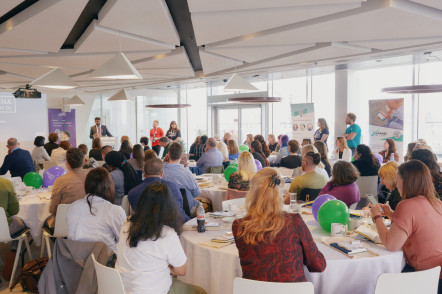In the past
In the past those who worked in fostering services often felt that understanding the views of children was the job of the child’s social worker and that their role was purely to support, train and monitor the foster carer. Thankfully, in contemporary fostering services this type of approach is where it belongs – in the past. How can you possibly make effective matches, understand the carer’s needs or support any placement without knowing the child and their lived experience within the home? You can’t.
This quote is from a lovely blog post from Caroline at By the Bridge fostering service where she explains the importance of communication being on the child’s terms:
Mind Of My Own gives our young people an opportunity to talk to us when they want to, rather than us as an organisation only getting in touch when we want to know something.
As someone who has set up and run fostering services in the past as well as having held the role of agency decision maker I think the link between the child’s voice and safeguarding is absolutely key. Children and young people are often best placed to let you know when things aren’t right in foster care placements and we all have to be willing to seek out their views, hear them and act upon them when necessary to safeguard children and help them achieve good outcomes.
Finding a voice
Here is an example of one such situation where Suki, aged 9 ‘found her voice’ after unhappily living in a foster family for seven months.
Suki was presenting as rather passive and compliant child and social work visits, observations and direct work exercises carried out with her suggested that all her needs were being met. However, due to her appearing withdrawn and preoccupied about past events a number of interventions were carried out including counselling and play therapy in the hope that social workers could understand the worries she had been harbouring. After signing up to her own One app account she made her true feelings known about her placement, using simple, but incisive, language to express her views of her carers and how they made her feel. Using the app she was able to share that she really didn’t like her carers, felt unwelcome and that she didn’t like living there. After a number of meetings and some further direct work to explore what she’d said Suki was moved to another placement, where she is much happier, is thriving and now feels loved.
Learning and making changes
Being ready and able to hear the views of children and young people in your care can literally make all the difference to their lives and outcomes. Serious case reviews are all about learning and making changes to practice.
You can read about an example about Grace, Lisa and Carey here. Tragically all three girls were sexually abused by their male foster carer but they found the strength to give the evidence needed to convict the perpetrator. This man and his wife had fostered 28 children between 1998 and 2014.
Learning from this terrible situation includes:
- Ensuring that children are asked for their views, wishes and feelings independent of their carer.
- Information and reflection about the manner in which children communicate, the people they choose to communicate with should be a starting point to measuring the effectiveness of contact with a child in placement and of routinely reviewing the quality of care arrangements.
- Giving children regular and independent access to people outside of their care placement and independent from their carers is essential.
Anyone who has ever managed a fostering service is aware of the issue of over identification with the carers at the expense of the child in placement and how this must be overcome to deliver safe practice. This case review noted as a recommendation that,
the supervision of foster carers needs to be robust. Where relationships have developed over several years between carers and social workers and other professionals, children who have concerns or are being abused will feel even more that they are unlikely to be believed or taken seriously.
The only way to counter this is to ensure the voice of the children in placement is heard loud and clear and that they expect to be taken seriously and have their views acted upon like Suki. This is the essential element of safe care in fostering and is why high quality fostering services like By the Bridge are proactive in ensuring that children and young people are safe, secure and thriving in their foster family.




